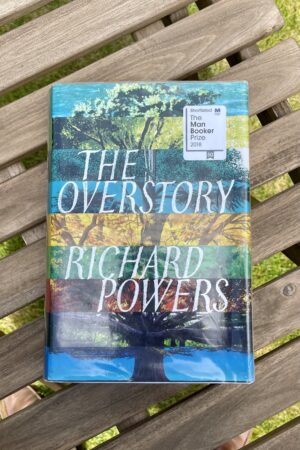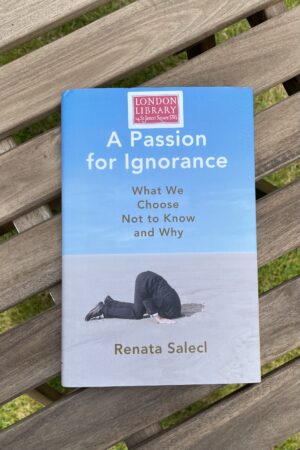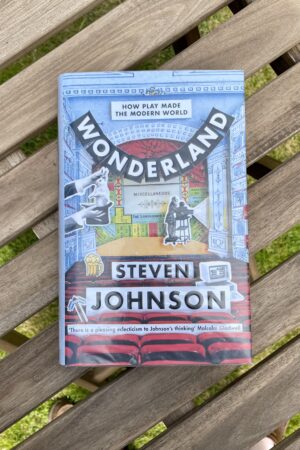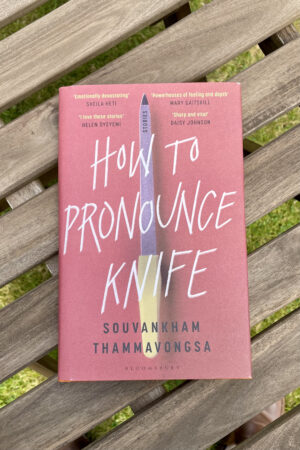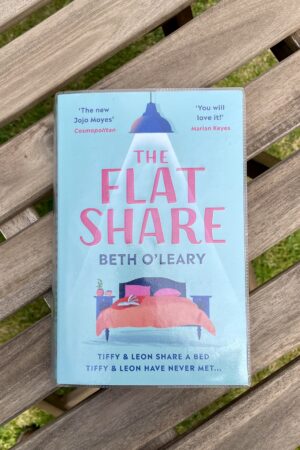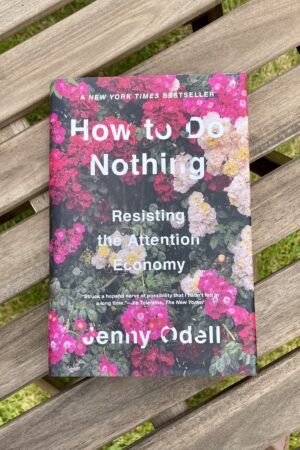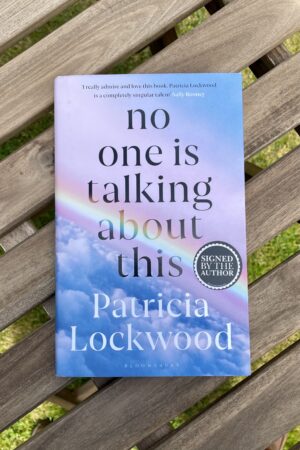What I’ve been reading this month
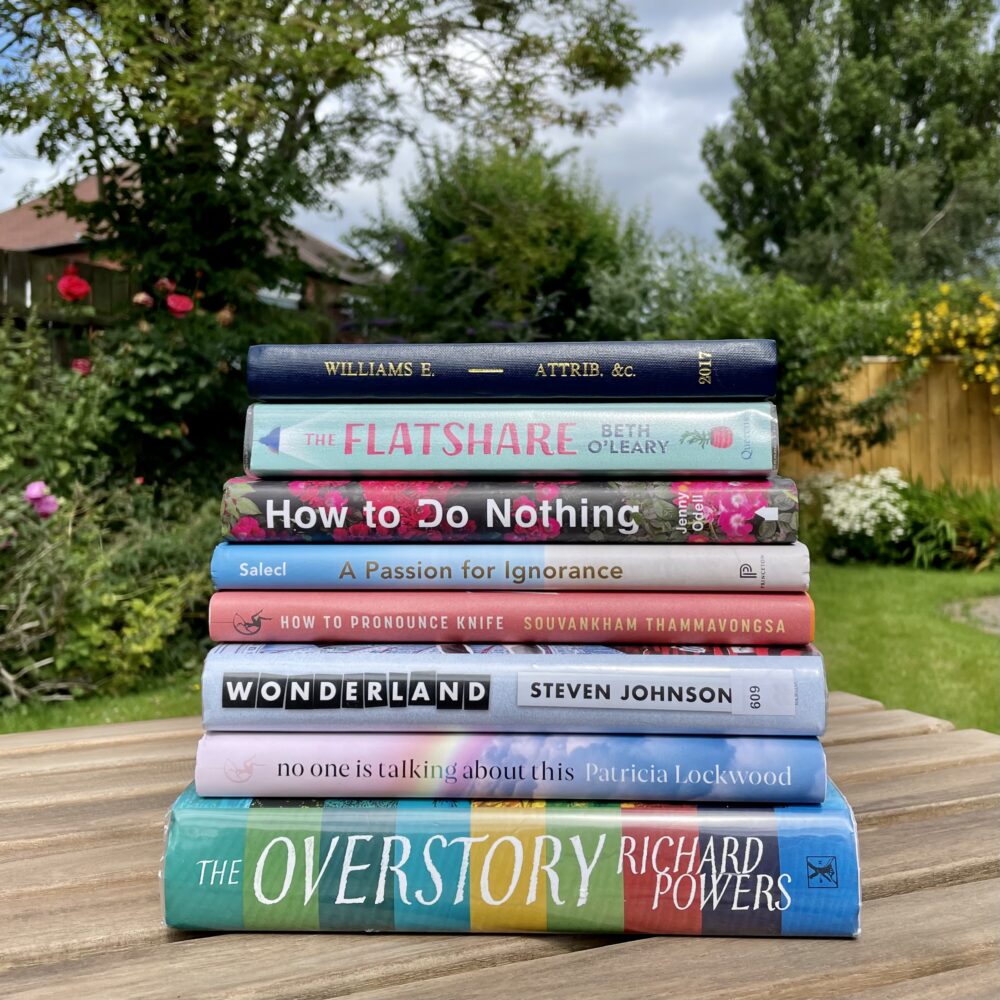
In recent months, I’ve had a few conversations with people about my reading preferences.
I very much prefer to read paper books, but it’s not always practical, particularly when catching up for a few minutes on the bus or similar. I therefore very often have both physical and electronic copies of books, and switch between the two. This could be an enormously expensive way of reading, except for the fact that I make extensive use of lending libraries.
I have probably not done enough in these monthly posts to make mention of those libraries. I’m going to try to remember to change that from this month forward.
The Overstory by Richard Powers
Richard Powers’s much-acclaimed 2019 novel is broadly about humanity’s relationship with trees, and the way in which deforestation is effectively harming (ending) the human species.
The structure of this book is used in part to reflect its message: Powers makes the point that trees which appear to be separate are essentially all part of one big interacting forest organism. The first section of the book (“Roots”) introduces a set of nine distinct characters in separate chapters, and then sets about demonstrating how they all interact in one big story (“Trunk” onwards).
This is all very well in theory, but I found that first quarter of the book deathly dull—though I note that one of my Goodreads friends found it to be the best bit. I wasn’t really invested in the characters, and contemplated giving up on the book.
However, from “Trunk” onwards, I thought this was exceptional. It had a combination of first-rate prose, a number of driving plots, and an interesting and well-argued thesis about our relationship with nature which Powers drives home. It was so good, in fact, that this has become one of my favourite books of the year so far, despite the rocky start.
❧ I switched back and forth between a hardback copy from Newcastle Libraries and an ebook from The London Library.
A Passion for Ignorance by Renata Salecl
A few years ago, I was chairing an outbreak meeting and the subject of whether to perform certain tests on a venue came up. My view was that the tests shouldn’t be carried out as the results wouldn’t change the management plan. I was challenged in this view by others asking: “But why would you choose ignorance?”
The answer is that both taking the tests and not taking the tests involved ignorance, just in different senses of the word. Not taking the test produced ignorance in the sense of not knowing what the outcome would have been; taking the test produced ignorance in the sense of effectively ignoring the result, given that the course of action wouldn’t change.
Renata Salecl’s 2020 book is a wide-ranging discussion of the rationale for ignorance in all its forms. Two of Salecl’s seven chapters focus on health topics: one on genes and one on denial of illness. I was particularly challenged by Salecl’s point on the ethical knots people can get into when a patient chooses not to know their own diagnosis: how can they then ever give informed consent for treatment?
I really enjoyed this book. At 154 pages, it was just the right length to explore its topic and open up room for thought. It was well-written, in that it had clear definitions of ‘ignorance’ and then applied these to different facets of life, bringing new insights as a result. This gave me a lot to think about.
❧ I read a hardback copy from The London Library.
Attrib. and Other Stories by Eley Williams
Eley Williams’s 2017 debut collection of short stories is themed around language and, perhaps, the limits of language in communicating thought. It is a stellar collection which I enjoyed very much for its playful yet meaningful approach. It was only 176 pages long.
It often feels like authors struggle when writing about writing, and fiction with this theme can often feel a bit self-consciously ‘quirky’. Williams completely avoids this trap, writing elegantly and with a large dose of wit, using the theme of language to explore life more broadly.
I really enjoyed this.
❧ I switched back and forth between a hardback from The London Library and an ebook from Scribd.
Wonderland by Steven Johnson
This 2017 book has been on my ‘to read’ list for quite some time, after I enjoyed Johnson’s previous book How We Got to Now. Similar to that book, this one tracks the history of a number of important technological innovations.
This volume concentrates on developments which have resulted from recreational activities. For example, in one section, Johnson takes the history of music and shows (among many other things) how the development of keyboard instruments eventually informed the development of computer keyboards. Other sections cover fashion and shopping, food (with a particular emphasis on spices), illusions, games, and the establishment of public space.
The pleasure of Johnson’s books is in the engaging quality of his storytelling, and this book is no exception.
❧ I read a hardback copy from Newcastle Libraries.
How to Pronounce Knife by Souvankham Thammavongsa
Thammavongsa’s 2020 collection of short stories has been one of those books which has been hard to avoid, much-celebrated and much-reviewed. It contains 14 short stories in its 179 pages, and they are all focused on the theme of being an immigrant and something of an outsider.
I enjoyed this book, and as I flick through it now many of the story titles bring a smile to my face. However, I recently read Interpreter of Maladies by Jhumpa Lahiri which covers broadly similar ground in a broadly similar format, and I think did it a little better.
I would probably be raving more about this book if I had read it at a different time: it really was very good.
❧ I switched back and forth between a hardback I bought online and an ebook from The London Library.
The Flatshare by Beth O’Leary
I felt light reading something relatively light weight and this romantic comedy caught my eye. It is Beth O’Leary’s very popular first novel, published in 2019.
Narration passes between the two protagonists, Tiffy and Leon, chapter by chapter. The premise is that neither can afford to rent a flat in London, but as Leon works nights as a nurse and Tiffy has an office job, they can ‘flat share’ by occupying the flat at mutually exclusive times of day. Thus, they get to know one another through observations and notes left for one another without having met.
The novel was exactly what I was looking for: lightweight fun. There was enough well-written shade to offset the silliness (death and domestic abuse being key themes, both sensitively handled) and to give the book sufficient depth to be interesting.
The writing is good enough to sustain the book. The writing style O’Learly uses for Leon is a little stereotyped and silly, but she draws comedy from this and even had one of the other characters comment on it, which helps to make a joke of the clunkier narration (‘Coldness. Growing low down in stomach. Heart rate ups again. And for all the wrong reasons this time. I’m getting angry again.’)
This wasn’t earth-shattering by any means, but it was exactly what I was looking for, and I think I’ll probably read more of Beth O’Leary’s books as a result.
❧ I read a paperback copy from Newcastle Libraries.
How to Do Nothing by Jenny Odell
Jenny Odell’s 2019 book on ‘doing nothing’ reminded me a lot of Carl Honoré’s 2005 book about ‘slowness’, which I suppose makes some kind of logical sense.
Much like Honoré’s book, Odell’s has some interesting arguments and observations about aspects of life, but they didn’t really coalesce into a convincing whole. In the same way as it wasn’t obvious to me what was ‘slow’ about many of Honoré’s examples, so it isn’t obvious to me why many of Odell’s examples—birdwatching, going to the symphony, reading a book, using alternative methods of farming—count as ‘doing nothing’.
The overall effect is therefore of a meandering book of things that Odell thinks are good in the world, some of which were genuinely interesting, coupled with occasional complaints about social media. I was left thinking… so what’s your point?
❧ I read a hardback copy that I bought online.
No One is Talking About This by Patricia Lockwood
This is Patricia Lockwood’s first novel published earlier this year. It’s been on my to-read list for a while, because I had read promising things about its reflection of modern culture, and being the first proper ‘social media’ novel.
Unfortunately, I really didn’t enjoy this. The novel is in two halves, both of which are written in a fragmented style, almost like social media posts.
I consider myself to be reasonably up-to-date with the online zeitgeist, but the first half of this novel completely lost me. This part establishes the protagonist’s commitment to social media (or the ‘portal’ as Lockwood has it) through lots of references to big ‘moments’ on social media in the late 2010s: I got a few of the references, but most of them went completely over my head. The second half involves a significant (real) life event for the protagonist, which felt less moving to me than I would have expected because of the continuation of the fragmented style.
This didn’t work for me, but perhaps you would feel differently.
❧ I switched back and forth between a signed hardback I pre-ordered online months ago and an ebook from The London Library.
This post was filed under: What I've Been Reading, Beth O’Leary, Eley Williams, Jenny Odell, Patricia Lockwood, Renata Salecl, Richard Powers, Souvankham Thammavongsa, Steven Johnson.
